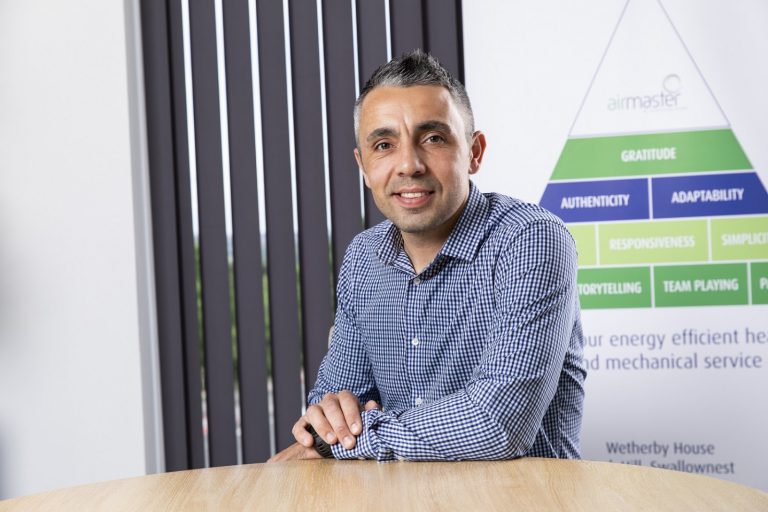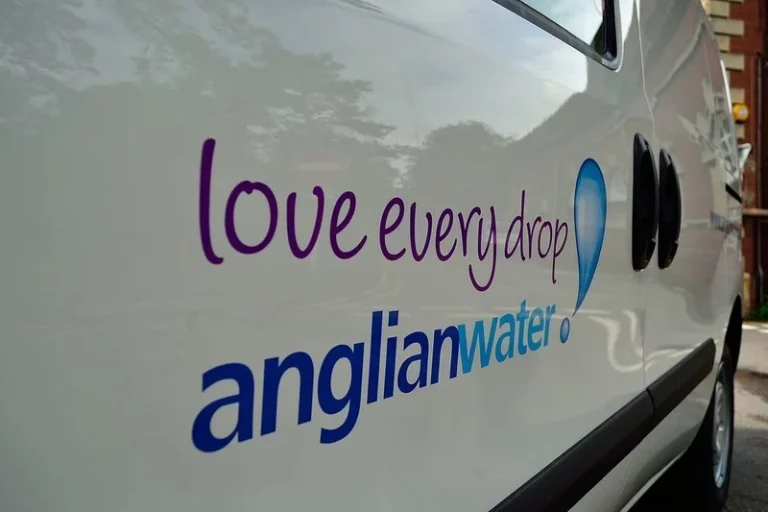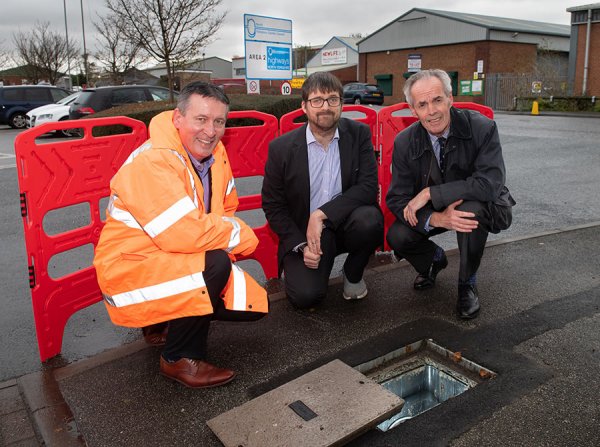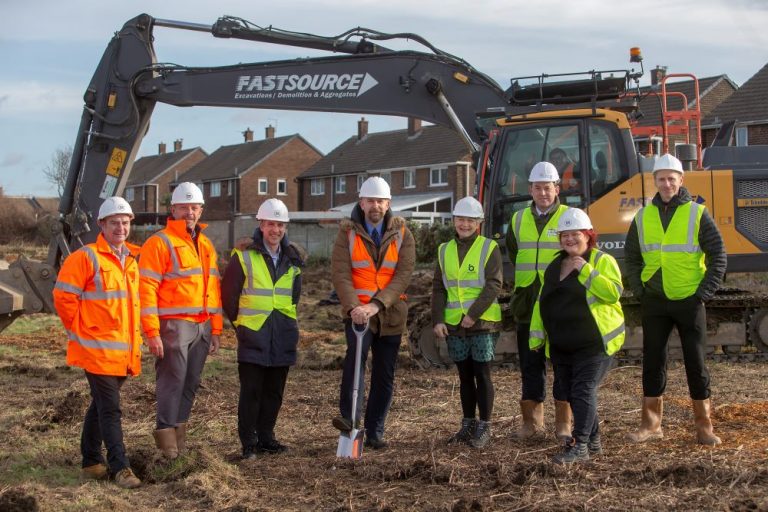For 14 years NYnet – a company wholly owned by ourselves – has worked solely within the public sector providing gigabit broadband to schools, hospitals, GP surgeries as well as local authorities where speed and reliability are essential.
NYnet will now extend its Local Full Fibre network to 12 rural business parks across North Yorkshire, which have historically struggled with poor connections, as part of the £3.6m investment which was awarded to us by the York & North Yorkshire Local Enterprise Partnership as part of its allocation from the government’s Getting Building Fund.
NYnet’s Chief Executive Officer, Alastair Taylor, said: “We are delighted to be sharing the knowledge and expertise we have developed over more than a decade of working with the public sector to benefit local businesses.
“Our provision of gigabit broadband to schools has recently put the county in the top three in the country for school broadband and we hope that the expansion of our service into business parks will help put the region on the map for digital services and capabilities.”
The programme will potentially benefit more than 1,000 businesses across the county, enabling them to stay competitive and enhance the economy and attractiveness of North Yorkshire as a place to invest.
Executive Member for Access Cllr Don Mackenzie said: “NYnet is well established and highly trusted by public sector services in our region and we are delighted that these benefits will now be available to business parks in rural parts of the county that have typically struggled with reliable connectivity.
“The move to expand into the private sector and support rural business is excellent news for our local economy and comes at a time when many organisations are looking to relocate away from big cities, with advances in technology such as this making that possible.”
Helen Simpson OBE, Chair of the York & North Yorkshire Local Enterprise Partnership, said: “Our region has ambitions to become a greener, fairer, stronger economy and schemes like this will help us get there. Improved digital connectivity is absolutely vital for businesses so we’re really pleased to see the continued progress of this work.”
Airmaster promotes a Senior Project Manager to their Maintenance team
Project Engineer, Scott Wolstenholme who has worked in Airmaster’s Contracts team for the last 3 years is moving over to the maintenance department as Senior Contracts Manager.
Scott will be responsible for attracting more work from the Refrigeration sector, bringing our existing customers up to date with what Airmaster can offer as an Air Conditioning & Refrigeration company.
Scott said “I will be working closely with our Maintenance/service engineers, with the aim of providing technical support, using some of my 25 years’ experience as a Refrigeration Engineer whilst on the road. I will still be carrying out site surveys and tenders for a variety of works which can include anything from small/large AC or refrigeration installations, cold rooms, clean rooms, ventilation systems, thermal insulations works as well as maintenance and service contracts.”
Lisa Pogson, Managing Director said “We are delighted to have promoted Scott into this new role. Our aim is to support our existing customers and attract additional clients to the maintenance department who are looking for a refrigeration specialist. Our maintenance team will benefit further from his expertise. This will enhance our team of skills looking after air conditioning, plumbing and heating systems.”
Anglian Water outlines largest ever year of investment
Anglian Water outlines largest ever year of investment focusing on climate resilience, environmental protection and driving down leakage
Including £28million of support for customers as cost of living increases
Anglian Water has today unveiled a huge £680million investment programme for the year ahead. The largest investment ever planned for a single year will be spent across the entire East of England, which is the driest and one of the fastest-growing parts of the country.
The funds will be ploughed into areas of work specifically aimed at preparing the region to meet the urgent challenges of climate change and population growth, as well as protecting the environment.
The water company will also continue to offer a wide range of support for customers to help them plan and manage their water bills, as the cost of living increases that have swept the UK over the last 12 months are set to continue.
Average water bills for the coming year are expected to be £454 for the year, or just £1.24 per day – an increase of just 6p per day on last year’s charges. This 5% rise compares to a forecasted average energy bill price hike of around 40%. Having a water meter remains the best way of keeping bills affordable as customers only pay for what they use.
Anglian Water’s Director of Customer and Wholesale, Pete Holland said:
“We know this year is going to be tough for our customers, as the cost of living increases for us all. That’s why we’re committed to keeping water bills as low as possible while still preparing our region to meet the significant challenges of a rapidly changing climate, and growing population.
“The average bill of £1.24 per day pays for all the water you need to wash your hands, to drink and to cook, and for every flush of the loo and cycle of the washing machine. But more than that, it helps us build and look after a water network that protects both the environment and our customers while looking ahead to future challenges too.”
A £680million investment programme: fit for a changing region
Operating in the driest region of the UK, Anglian Water has often highlighted the future challenges of water scarcity facing the East of England. The company’s largest ever five-year business plan, which began in 2020, outlined ground breaking schemes specifically designed to tackle this challenge, while protecting the region’s environment for the long term. The proposals were wholeheartedly endorsed by customers.
This is the third year of that cycle and will see boots-on-the-ground as this work continues, including:
· Environmental investment: £157million to protect and enhance the natural environment by removing chemicals such as phosphates and ammonia from used water, and working with organisations like The Rivers Trusts on river restoration projects to protect some of the region’s unique chalk stream habitats. This work forms part of Anglian’s £800million Water Industry National Environment Programme (WINEP), which is larger than that of any other water company.
· Tackling CSOs: Within that programme of work, £52million will be spent on work tackling Combined Storm Overflows by increasing the network’s capacity to store excess rainwater, investigating and remedying the highest spilling CSOs and installing more monitors across the sewer network, so future investment can be targeted in the places where it can have the most benefit for the environment.
· Securing future supplies: £124million continuing work on the region’s biggest water infrastructure project for a generation, creating hundreds of kilometres of new interconnecting pipelines and associated infrastructure to move water around the region wherever and whenever needed. This is part of an ambitious new investment in resilience to keep taps running and minimise the impacts of future droughts, and reducing the amount of water taken directly from the environment.
· Helping customers save water: £31million will be spent on the continuation of the company’s programme to roll out over 1 million upgraded water meters across the region, helping customers to understand their water usage and identifying leaks in customer’s homes to better meet demand for water in the future.
· Reducing leakage: £11million on continuing to drive down leaks, retaining Anglian Water’s position as having the lowest level of leakage of any water company in the UK, by almost half.
The company will also invest heavily in maintaining and improving customer service, providing top quality drinking water and protecting the region against severe weather such as drought and flooding.
Continuing support for customers and communities
Every year Anglian Water commits £1million to help vulnerable customers facing financial hardship. The year Anglian Water will continue to extend financial support to over 300,000 households via its WaterCare Service.
Alongside helping people who’ve needed financial support this year, the water company has also increased the number of customers signed up to its Priority Services Register, meaning over 250,000 of the most vulnerable customers will get additional help should they need it.
The company’s priority service helps a wide range of people, from those with sight, hearing, or mobility difficulties, to parents with babies under 12 months old. The service also provides support to customers with long or short-term medical needs should there be any interruption to their water supply.
Pete continued: “Offering the right support for our customers has never been more important. Over the next 12 months we’ll be helping over 300,000 people by putting together packages of support that are tailored to meet their individual needs. This might be through accessing affordable tariffs or payment holidays for those who may be struggling to pay, or could be as simple as direct debit payments to help spread the cost each month.
“Whatever the circumstances, our message to customers is simple: if you’re struggling, please get in touch. The sooner we talk, the sooner we can help. And not only with your water bill, our Extra Care team can also signpost you to other support that you may be entitled to.
“This is the biggest investment we’ve ever made in a 12-month period and it comes at an incredibly challenging time for everyone. Our customers can be reassured that we invest every pound in doing the right thing now and for the long term. We believe our responsibility is to them, their communities and to the environment we look after.”
Go ahead for new housing in Crookes and Manor
Two new house building homes for rent projects are set to start as part of our plan to deliver 3,100 additional high quality and affordable council homes by 2029.
Sheffield City Council’s plans for council housing over the next 5 years will focus on continuing to build more houses in the city, maintaining and improving tenants homes and improving energy efficiency.
£310 million will be spent on major improvements to existing council homes on top of the £40 million that is spent on day to day council house repairs each year. A further £339m will be spent increasing the supply of new homes, £650 million in total.
Already the council has built or purchased 732 homes as part of this plan, called the Stock Increase Programme, a mixture of homes purchased on the open market and new homes built or purchased ‘off plan’. 221 new homes are already under construction and scheduled to be completed by Summer 2022. 762 homes on a further 8 sites are currently being planned.
The ‘Bole Hill View’ new build project in Crookes will provide 36 x 1 bedroom apartments on the site of the former older persons care home which has been disused for the last seven years. The apartments will meet the need for one bedroom homes in this area and will be built using a ‘fabric first strategy’ construction technique will be built using a ‘fabric first’ approach involving maximising insulation and air tightness integrated with quality build techniques and efficient ventilation systems.
Building in this way is part of our response to the climate emergency where homes will be more energy efficient, warmer and result in lower heating bills.
The ‘Corker Bottoms’ project will see the purchase of 47 new homes in Manor which will be delivered by Sheffield Housing Company (SHC), the council’s innovative regeneration vehicle. Planning approval has already been granted for their construction on the vacant housing site. There will be 15 x 2 bedroom, 20 x 3 bedroom and 12 x 4 bedroom homes and SHC intends to start building in spring this year, with all units due for completion in winter 2023/24.
Councillor Paul Wood, Executive Member for Housing, Roads and Waste Management, said: “These are another two important projects approved as part of our plan to build more houses of the right type and in the right location. I’m pleased to see that one of them is due to start in only a few weeks with the second starting in the autumn. We’re on target with our plan which can only be good for those who need a safe, warm and affordable home and for the city as a whole. We’re building energy efficiency into existing homes and in new build homes to respond to the climate emergency and through our house building we’re providing more job opportunities and apprenticeships for local people too.”
Councillor Mazher Iqbal, Executive Member for City Futures, Culture, Development and Regeneration, said: “As Sheffield’s population continues to grow it’s really important that everyone has access to high-quality, affordable housing where they want to live. These new developments will see hundreds of new homes built to meet demand and provide a range of housing types to cater for different needs; creating new communities in these popular locations.”
Application submitted for new housing development in Stokesley
A development of 25 new high-quality homes is being planned for Stokesley in a move that would see a derelict farm building replaced.
The proposal would see a combination of two, three and four bedrooms homes built by North Yorkshire’s Brierley Homes Ltd, with seven affordable homes included within the development to help those who would otherwise struggle to get onto the property ladder.
A planning application has been submitted for the development on land situated off Westlands Road, to be called Levens Pastures. If that is successful, work could start on site before the end of summer.
Brierley Homes is our housing development company, part of the Brierley Group, the trading arm of the council. It has already delivered high-quality homes at several locations across the county, often using brownfield sites to help meet housing needs.
Brierley Homes, and the local contractors who work on developments, also make great efforts to involve themselves in the community and have provided help and support to various groups, through supplying a combination of materials and skills.
All the properties have been designed to meet national space standards, creating high-quality family homes with appealing landscaping and open space. These are factors house buyers want to see, but which also help to ensure the homes are a positive addition to the communities in which they are built.
Brierley Homes Director Matt O’Neill said: “We are very proud of the quality of new homes we have been able to bring to North Yorkshire.
“Working with our local contractors and high quality independent businesses for our kitchen, bathrooms and other services, we produce well-designed and carefully constructed homes, which help to meet the county’s housing needs.
“Better still, value generated from these developments will be used to support County Council activities, so the whole county benefits.
“One thing which sets us apart is that we put great effort into being part of the community and on previous projects, we have been delighted to help local groups, schools and organisations with materials and other assistance we and our partners have been able to donate.”
County Councillor Derek Bastiman, Executive Member for Growth and Economic Development, said: “As a council, we took the opportunity to help the local economy and encourage growth by entering the housing market with Brierley Homes. This has proved most effective by filling a void. It is great to see another fine development that should help to address local housing needs.
“I am sure the quality will match their previous developments and I believe it will be a positive addition to Stokesley.”
Brierley Homes is part of the Brierley Group, which was established in 2017 to bring together council-owned companies with the aim of improving front line services. The group offers services within North Yorkshire and beyond. Other companies in the group are NY Highways, Align Property Partners, First North Law, NYnet, Yorwaste, Veritau, North Yorkshire Education Services and NY Tech.
Get more information about Brierley Homes.
First rural business park benefits from ultrafast speeds
Businesses at Thirsk Industrial Park will soon be able to access ultrafast broadband speeds via full fibre provider NYnet Ltd.
York Gift Card is one of the most successful in the UK, generating £70,000 in sales in 2021
York is one of 10 areas of the UK with the highest gift card sales in 2021, says fintech Miconex, as local gift cards widen their appeal across the UK and across the generations.
York, Aberdeen, Enniskillen, East Ayrshire, Cambridge, Belfast, Barnsley, Perth, East Lothian and Kirkwall recorded sales of over £1.2 million for their local gift cards in 2021, a 32% increase on 2020.
Carl Alsop, Operations Manager at York BID said the data shows the universal appeal of local gift cards: “The York Gift Card launched in 2019. We achieved almost £70,000 in sales in 2021, an increase of 47% on 2020 and we’re very proud of that. In 2021 we introduced a second card design, offered free postage on gift cards, and continued to add on businesses. Over 300 businesses now accept the York Gift Card now, making it the biggest in the UK. When you look at the range of businesses, you understand that it can be bought by, and enjoyed, by anyone, no matter their age, and this is reflected in the 2021 sales data, showing the appeal of local gift cards right across the generations.
“When we started the gift card, we thought it would be a card primarily for residents, but it really is a card for all. We’ve had York Gift Cards purchased from as far away as Australia, and for such a wide range of reasons, from winning a pumpkin carving competition, thanking someone for taking care of them during lockdown to a gift for a staycation in York. In 2022 we’ll continue to innovate and grow the York Gift Card, there really is no end to the potential of a local gift card, it can always be developed with new businesses joining and new customers using the card.”
Miconex increased the reach of its award winning Town & City Gift Card programme to 70 UK and Irish places in 2021. Analysis of 2021 data shows universal appeal for its local gift cards across the age brackets for both the initial sale of gift cards, and the value of that initial gift card sale.
25-34 year olds lead on gift card transactions but 35-44 year olds lead on gift card value in the UK.
In the UK, 25-34 year olds were responsible for 25.44% of gift card transactions, followed by 35-44 year olds (21.15%), 18-24 (15.79%), 45-54 (14.77%), 55-64 (13.74%) and 65+ (9.11%).
Higher purchasing value for the 35-44 age group placed this segment into top place for local gift card transaction value in the UK (28.96%), followed by 25-34 (19.94%, 55-64 (16.25%), 45-54 (15.87%), 18-24 (9.93%) and 65+ (9.05%).
Women led the way in initial gift card sales and transaction value in the UK at 57%.
Colin Munro is the managing director of Miconex: “It’s really encouraging that support for local businesses is coming from all across the UK, and from all ages. Our places, like York, have created a local gift card that people want to buy and receive as a gift. Customers can pick up the gift card and instantly see many, many businesses where they could spend their card. It makes the idea of loving local easy for customers to achieve, and to share with others.
“As well as the number of businesses, the unique mix of hospitality, retail, attractions and services on the York Gift Card is integral to its success, and is a huge contributing factor to their universal appeal. Whether someone is 18 or 80, there is an activity they’d enjoy, a restaurant they can visit, or a shop they can buy from, all through their gift card.
“It’s particularly encouraging to see the adoption of local gift cards by younger people, in both the 25-34 and 18-24 age groups. These age groups may spend slightly less when they buy the gift card initially, but they back the concept of shop local which is vital for the recovery of our businesses, and the future of our high streets. As we roll out our new digital gift cards, we are continuing on our journey to make shop local easy, convenient and appealing to the whole community.”
£150,000 of Government cash to help businesses upgrade for the future
A new grant scheme to supercharge digital growth across North Lincolnshire launches today.
The Government-funded £150,000 cash pot will enable companies to invest in new technology to help them grow, creating more jobs and opportunities.
The grants – which can be up to £5,000 – will be targeted at companies looking to invest in the latest technology.
This can be anything from specialist cutting-edge hardware and software, upgrading internet connections, buying e-commerce equipment and paying for marketing campaigns or consultancy costs.
Businesses of all sizes are eligible to apply, with the minimum award being £1,000.
This latest grant programme comes after the launch at the end of last year of start-up grants for new businesses and sustainability grants so companies can upgrade to cleaner and greener equipment.
It is part of the council’s pledge to deliver on the levelling-up agenda and support a strong, diverse business sector that will create jobs and enable growth.
Cllr Rob Waltham, leader, North Lincolnshire Council, said: “This money will help arm businesses with the cutting-edge technology they need to flourish in the 21st century.
“Digitalisation is a key enabler for development, and we are already forging ahead with plans to bring full-fibre connectivity to North Lincolnshire. Businesses can take advantage of that, and more, with the help of these grants.”
Ultrafast fibre was installed in parts of Scunthorpe last year and around 900 more commercial properties will be soon able to access the gigabit-enabled broadband thanks to more Government cash, part of the £27m Towns Fund deal for North Lincolnshire.
For more information on eligibility for the new grants and to apply, go to the Invest In North Lincolnshire website to book an appointment with a business advisor.
The Yorkshire and Humber region sees modest rise in deal activity in 2021
The growth in deal activity within the Yorkshire and Humber region recorded towards the beginning of 2021 looked to have plateaued slightly in the final quarter, according to Experian’s United Kingdom and Republic of Ireland M&A Review for the year.
Deal volumes, which had been up over 28% in Q1, 46% in Q2, and 35% in Q3 2021, reached 634 for the whole year, a more modest 15% increase on a year on year basis (up from 550 deals in 2020).
However, this was the second highest number announced within the last ten years (second only to the 665 transactions recorded in 2019). The positivity in deal numbers was reflected in transaction values, which saw an exponential rise of 51% to just over £17.4bn (up from £11.5bn in the corresponding period last year). Yorkshire and Humber-based companies were involved in 9.2% of all UK deals in 2021 and contributed 5.4% to their total value.
Yorkshire & Humber’s sharp increase in deal value was fuelled by one of the region’s biggest ever deals – the largest recorded over the last decade. This saw Market Bidco, an acquisition vehicle controlled by US private equity firm Clayton, Dubilier & Rice, agree a recommended cash offer to acquire Wm Morrison Supermarkets, the Bradford-based supermarket chain. Following a highly competitive auction procedure, the bid was finalised at 287p per share, which valued the entire issued and to be issued share capital of Morrisons at approximately £7.1bn on a fully diluted basis and implied an enterprise value of £9.8bn – this has been the second largest deal recorded in the UK so far this year.
The second biggest deal of 2021 saw CBRE Group, an American commercial real estate services and investment firm, acquire Turner & Townsend Holdings, a Leeds-based provider of programme, project and cost management services, for £960m in cash.
Manufacturing remained the most active sector in the Yorkshire and Humber region with 176 transactions in 2021, ahead of professional services (168) and wholesale and retail slightly further back on 148 deals.
These sectors (wholesale and retail aside), along with infocomms, support services, financial services, construction, transport, hospitality and public administration and defence and compulsory social security all reported double-digit growth in deal volume. The education sector exceeded those numbers year on year, with triple-digit growth of 110% (from ten deals in 2020 to 21 in 2021).
In respect of transaction values, wholesale and retail (where deals worth almost £10.7bn were recorded), was the highest by industry sector. The next best was manufacturing, where the total value of deals reached nearly £2.4bn – this figure was boosted by Cargill, a US global food corporation, agreement to acquire the Performance Technologies and Industrial Chemicals (PTIC) businesses of Goole-based Croda International, in a deal worth €915m (approximately £778m). It is also important to highlight the professional services, infocomms, support services and real estate sectors, which all managed to break through the £1bn barrier for transaction value.
Where detailed funding arrangements were disclosed, a total of 62 transactions that were funded at least in part via new bank debt were recorded; down from 66 for the same period in 2020. HSBC was the region’s most active lender last year, providing funding for 12 transactions, ahead of Shawbrook Bank and Shard Credit Partners, both of which financed five deals.
Private equity has again been a prominent source of funding in the region, having been involved in 110 transactions in 2021, making it the second most common source of funding for new deals behind cash (242). The number of deals funded via private equity has increased (from 90 last year), whilst the value of those deals has risen sharply by 58%, from £7.1bn to over £11.2bn.
The Northern Powerhouse Investment Fund (NPIF), which combines funding from the UK Government, European Regional Development Fund, British Business Bank and European Investment Bank, was the lead capital investor, providing equity financing for 15 transactions.
K3 Capital Group has been the most active financial adviser for 2021, having advised on 37 transactions; marginally ahead of Grant Thornton on 36 deals, with BHP Corporate Finance in third position having been cited in 24 deals. Rothschild & Co was the lead financial adviser by value, advising on eight transactions for an aggregate consideration of just over £12bn – this included representing Morrisons in the largest deal within the region as mentioned above.
Clifford Chance was top of the legal value rankings having advised on three transactions for an aggregate consideration of £10.4bn (this included working for Clayton, Dubilier & Rice in its buy-out of Morrisons). Clarion Solicitors led the volume rankings with 46 qualifying deals, ahead of Schofield Sweeney and Squire Patton Boggs on 34 and 28 transactions, respectively.
Work begins on development of new Barnsley homes
Work has started on a new development of 35 homes providing a mix of houses, bungalows and apartments in Barnsley.
The development, off St Michaels Avenue in Monk Bretton, will provide a mixture of homes for social rent, private sale and private rent.
Sixteen of the new properties will be low carbon, constructed with sustainable features and energy-saving technology such as air source heat pumps instead of mains gas.
Barnsley Council named Esh Construction as the appointed contractor after the scheme was procured through YORhub’s YORbuild2 framework.
Esh operations director, Simon Woodward, said: “Across our construction projects we aim to maximise the social and economic benefit for the local community. Throughout this scheme we will aim to procure a local supply chain, employ a local workforce and support community initiatives.
“We are delighted to commence work on the first new-build housing development Esh will deliver for Barnsley Council, marking a significant milestone in our growth across the Yorkshire region.”
The development was given the go-ahead by planners in December 2020 and will provide 24 two, three and four-bedroom houses, 7 two-bedroom bungalows, and 4 two-bedroom apartments. It forms part of the council’s housing strategy to increase the supply of affordable housing and private rented homes to deliver a diverse range of properties and tenures to help create sustainable communities.
Cllr Tim Cheetham, Barnsley Council’s Cabinet spokesperson for Regeneration and Culture, said: “The government says that we must provide 21,524 new homes by 2033, and we’re dedicated to making sure our borough will have sustainable, quality housing, so you can live in the right house for you.
“I’m delighted we’re now able to get moving on these exciting new homes which will help us achieve that.”
Esh Construction will work in partnership with Jefferson Sheard Architects and MJM Consulting Engineers.
Construction work is now underway with the first new homes being available for residents in Spring 2023.
Broad Welcome for Levelling Up Plans from LEP Chair
The Government’s White Paper on Levelling Up the UK published yesterday has been broadly welcomed by the Chair of the Greater Lincolnshire Local Enterprise Partnership, Pat Doody.
The White Paper recognises the value of business-led Local Enterprise Partnerships (LEPs) and sets out a 12-point plan for reducing geographical inequalities across the country.
But Pat Doody says the lack of devolved powers or a county deal for Lincolnshire is a missed opportunity for the area.
“We’re very pleased to see that this Government recognises the value of business-led LEPs and has embedded the role of LEPs in Government policy for the first time,” said Pat.
“The White Paper confirms that having an independent business voice in the decision-making process is vital for the economic wellbeing of local areas, skills and jobs. We are committed to working with Government to underpin that, to help build the new structures outlined in the White Paper and to focus on the priorities it sets out.”
Pat welcomed the missions set out in the White Paper, in particular the commitment to investing in education in Lincolnshire.
Lincolnshire will become one of 55 new Education Investment Areas aiming to improve education for disadvantaged children and young people. The county will receive targeted support including priority for new specialist sixth-form free schools, help for schools to retain the best teachers in high-priority subjects, and access to a new pilot programme to improve pupil attendance.
“The increased investment in education is to be welcomed, as is the commitment to increase public funding for research and development away from the South East by 40%,” said Pat.
“We will work with business and the universities to make sure we get our fair share of R&D opportunities in Greater Lincolnshire.
“And it was encouraging to see our UK Food Valley highlighted in the White Paper as a good example of private sector initiatives supported by the public sector, and the Lincolnshire Institute of Technology cited too.”
However, the Chair of the Greater Lincolnshire LEP voiced a concern that future funding for Greater Lincolnshire might not match levels of EU funding seen in the past.
“We welcome the news that the process of bidding for funding will be simplified, but the criteria for qualifying to receive cash are still unclear. We remain concerned that money from the Shared Prosperity Fund will not be sufficient to match previous regional funding from the EU for Greater Lincolnshire,” he said.
Pat also expressed disappointment that Lincolnshire was not included in the first-wave list of areas to be offered devolution deals. Nottinghamshire, Derbyshire, Leicestershire and Hull/East Yorkshire are all included.
“We were disappointed to see that Greater Lincolnshire was not announced in the first wave for a devolution deal, despite being surrounded by areas that were invited,” he said.
“As a LEP we will continue to put our shoulder to the wheel by lobbying for Greater Lincolnshire and by working at pace with our local authority partners to seek an early devolution deal.
“Our opportunity has been unrealised and under-invested in for decades, and levelling up will only be achieved if it is a priority shared by the whole of Government, working with local and regional leaders.” We all know that we are stronger together, and the Greater Lincolnshire voice must continue to be united and strong.”












